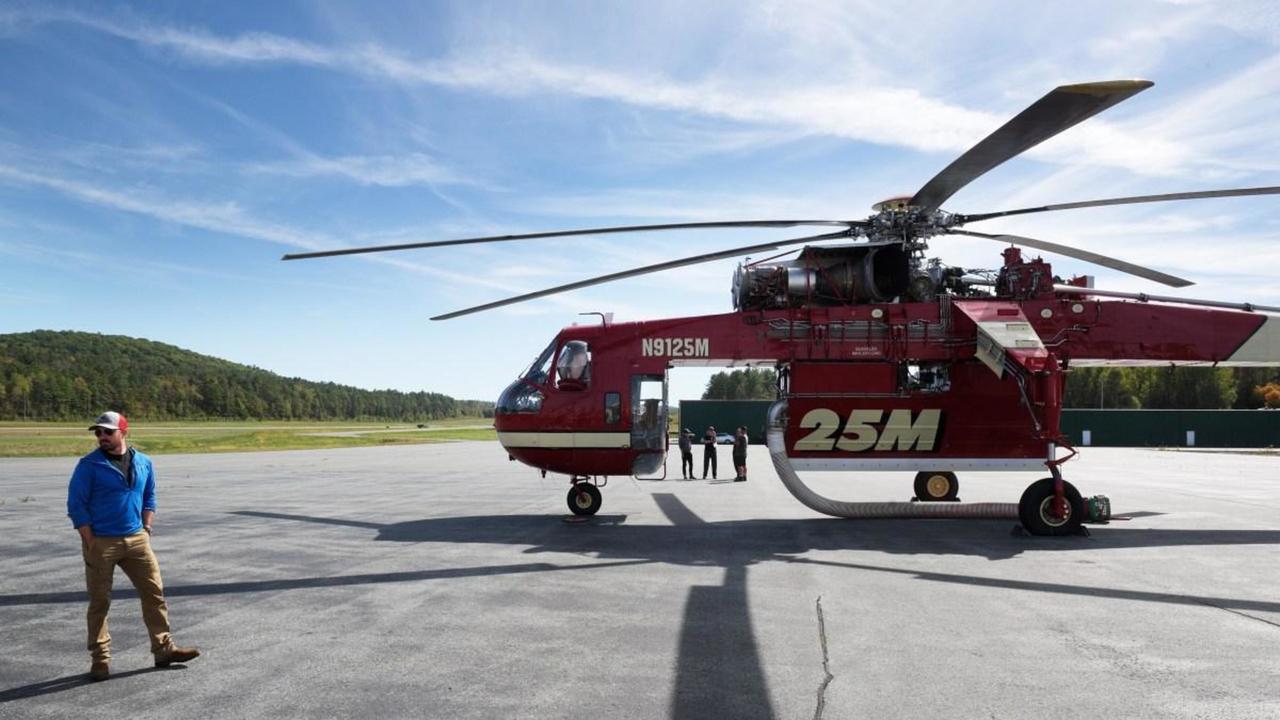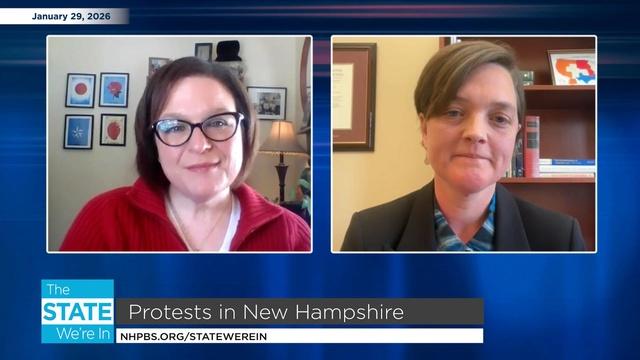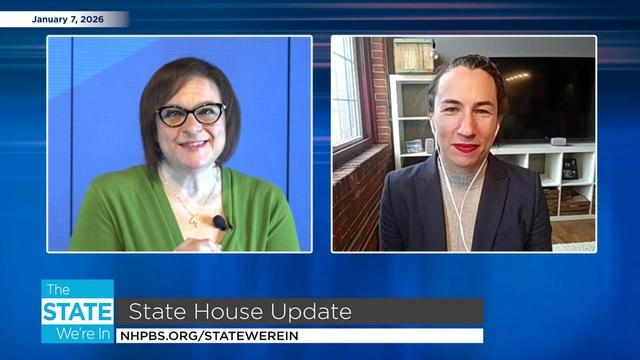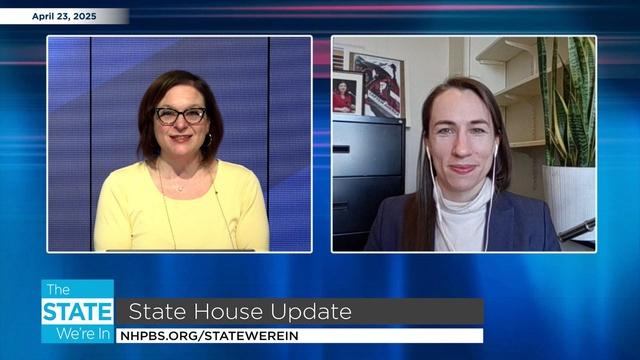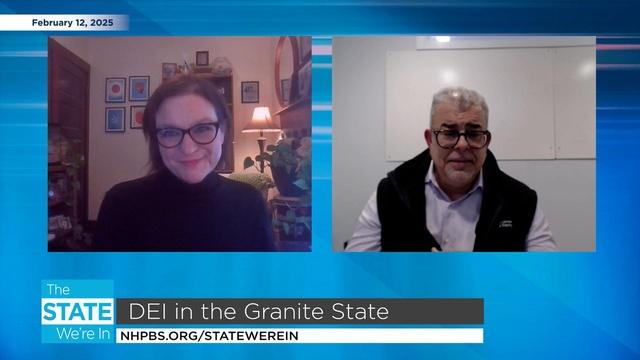Drought prompts U.S. Forest Service to station fire helicopter in Lebanon
Connecting New Hampshire
By: Clare Shanahan (Valley News)
PUBLICATION DATE
October 4, 2025
LEBANON — A firefighting helicopter will be stationed at the Lebanon Municipal Airport until further notice to speed up wildfire response in the Northeast, especially in New Hampshire, Vermont and Maine, amid the ongoing drought.
The U.S. Forest Service has positioned the former Vietnam-era Army helicopter at the airport. It is specifically adapted for fire suppression and will be used to respond to potential drought-related wildfires in the area until the fire risk lessens.
Though common in other parts of the country, this is the first time a resource like the fire helicopter has been stationed in New Hampshire since 1995, Steve Sherman, chief of the New Hampshire Forest Protection Bureau said during a drought task force meeting on Tuesday.
In the case of a fire, the helicopter can dip down into a water source that is at least 18 inches deep and use a snorkel device to collect up to 2,650 gallons of water, helicopter co-pilot Tim Lintz said Thursday. The role of the helicopter is to support ground firefighting crews. It is not currently set up to carry fire retardant.
“We really can’t put out a fire by ourselves,” said Lintz. “We’re just a water truck.”
The helicopter can cover 60 to 70 nautical miles for immediate fire response and fly for about two and a half hours without refueling.
At the Lebanon airport, the Montana-based helicopter is ideally positioned to respond to potential fires in the Green Mountain and White Mountain National Forests, according to a news release from the city.
If the helicopter is needed to respond to a major forest fire on land outside of the National Forests, it would have to be ordered by the state agencies that coordinate fire response, Vermont State Forest Fire Supervisor Dan Dillner said Friday.
In Vermont, this responsibility falls to the wildland fire division of the Department of Forests, Parks and Recreation. In New Hampshire wildfire management is the responsibility of the Forest Protection Bureau of the Division of Forests and Lands.
If the state of Vermont or New Hampshire was to order the helicopter, they would have to pay about $10,000 an hour for the resource, Dillner said. It cannot be ordered by local departments directly.
“It’s not something we’re just going to order up for every fire,” Dillner said. “It depends on the situation, but it is nice to know that we have that capability.”
As of Sept. 30, about one-third of New Hampshire, including almost all of Grafton County and nearly half of Sullivan County is experiencing extreme drought conditions.
In Vermont about one-quarter of the state is experiencing extreme drought that is concentrated around Orange and Windsor counties, according to the federally managed U.S. Drought Monitor.
“Extreme” is the fourth level on a five category scale, just below the highest possible category of “exceptional drought.”
New Hampshire’s drought management team that coordinates drought response met this week for the first time since 2020. Vermont has also reconvened its drought task force for the first time since 2022. Both teams are coordinating emergency drought response.
Both states issued statewide burn bans on Sept. 22 that are ongoing.
In Vermont, Wildland Fire Specialist Kelsey Zaengle said there were one to two fires every week before the burn ban. As of Thursday, there had been no wildfires since the ban was put in place.
In August, there were 52 wildfires across about 40 acres in New Hampshire compared to one in the same month last year and three in August 2023, according to data Sherman shared at the meeting.
Last week’s rain slightly decreased the fire danger, but fire activity is expected to resume into the weekend, Sherman said.
For safety reasons, Dillner said it is extremely important that if the helicopter is dispatched people do not fly drones or small planes in the area. If there is another small aircraft nearby, the helicopter will have to be grounded for safety reasons.
“If you fly your drone, we can’t fly to protect the forest or structures,” Dillner said.
These articles are being shared by partners in the Granite State News Collaborative. Don’t just read this. Share it with one person who doesn’t usually follow local news — that’s how we make an impact. For more information, visit collaborativenh.org.
Watch Online
Return to the
The State We're In
Main Page
Support for The State We're In is provided by New Hampshire Charitable Foundation
The State We're In is produced in partnership with the Granite State News Collaborative and the students and staff of the Marlin Fitzwater Center for Communication at Franklin Pierce Unversity in Rindge, NH.
